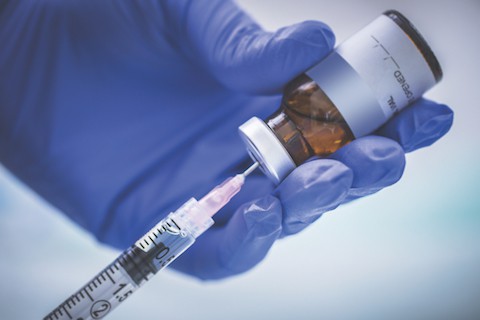
Scientists at the University of Exeter in the UK have launched a trial designed to test the widely-used Bacillus Calmette-Guérin (BCG) vaccine for potential protection against severe COVID-19.
The BRACE trial, coordinated by the Murdoch Children’s Research Institute (MCRI) in Melbourne, Australia, has received over $10m from the Bill and Melinda Gates Foundation to support its global expansion. In addition, the Peter Sowerby Foundation has contributed funding to support the Exeter trial site.
The trial, which now has study centres in the UK, Australia, the Netherlands, Spain and Brazil, will recruit over 10,000 healthcare staff, who will either be given the BCG vaccine or a placebo injection.
In previous studies, it has been suggested that the BCG vaccine could reduce susceptibility to a number of infections caused by viruses that are similar to SARS-CoV-2, which causes COVID-19.
The BCG vaccine, originally developed in 1921, is traditionally used to protect against tuberculosis although it is no longer routinely administered in the UK. Despite millions likely to have received the BCG shot in childhood, it is thought that the vaccine would need to be given again to induce any benefit against COVID-19.
In Guinea-Bissau, West Africa, a high-mortality setting, the BCG jab reduced death by 38% in newborns, mainly due to a reduction in the cases of pneumonia and sepsis. In South Africa, the BCG vaccine reduced respiratory tract infections by 73% in adolescents.
This has led to a renewed interest for the use of the BCG vaccine to protect healthcare workers and other vulnerable individuals against developing severe COVID-19.
“People on the COVID-19 front line, including healthcare workers and care home workers, are particularly vulnerable to coronavirus infection. Up until now, care home workers have been overlooked by most research,” said John Campbell, a professor at the University of Exeter Medical School and UK lead of the BRACE study.
“The BRACE trial provides us with a great opportunity to offer potential help to this important group of individuals who are providing healthcare to some of our most vulnerable citizens in important community settings,” he added.
In an article published in the Lancet, the authors – including World Health Organization (WHO) director-general Tedros Adhanom Ghebreyesus – suggest that the BCG vaccine could “bridge the gap” for high-risk individuals prior to the development of a COVID-19 specific shot.
In the same article, the authors added that the BCG vaccine induces metabolic and epigenetic changes that enhance innate immune response to subsequent infections in a process called ‘trained immunity’.
This may mean that receiving the BCG vaccine could reduce viremia (the initial spread of the virus in the blood) following SARS-CoV-2 exposure, hopefully resulting in less severe COVID-19 disease presentation and more rapid recovery.




